No, this is not about some novel way of catching sea trout or how to get a large Danish salmon, but about remembering to relax when you fish.
This term was coined while my good friend Henning and I were fishing with our generous Canadian fishing and tying friend Fran. Fran is pretty energetic... bordering on the hectic. Fishing with her is a fast paced experience. So is shopping... and cooking... and... well, basically anything.
While visiting her and her husband Gerry in BC some years ago, we showed her how to fish the Danish way, and this article will try to show you too.
We've experienced other people who have had quite a hectic approach to fishing, and having fished with some of them many times, I think we have eventually convinced them that you need to take a break now and then, and that fishing isn't only about casting and catching, but also about being with friends and getting some stress free time.
Drive-walk-cast-walk-drive
If your fishing is one long drive-walk-wade-cast-fight-land-walk-cast-drive-walk-cast-cast-walk-cast sequence, you need to poke a few laying downs, relaxings, drinkings and eatings into that sequence. Taking it easy is a very important part of fishing, and we introduced Fran to the concept of taking a deep breath, laying down on the bank, closing your eyes and simply enjoying doing nothing.
No scouting for fish, no anxiously wanting to go to the next spot, no trying to select the next and better fly, no rigging your gear for some different fishing method.
No, just relaxing.
Not uniquely Danish
I know that relaxing while fishing isn't uniquely Danish, but I have fished with quite a few people all over the world, and the fishing days most places seem to be built on a distinct sequence of events: breakfast, transport out, walking/trekking to water, fishing, lunch pack, fishing, walking/trekking to car, transport home, dinner.
My Danish fishing days generally contain a lot more drinking and eating, less transport and walking plus an important and healthy portion of doing plain nothing with my nose pointed towards the sky.
Relaxing makes you better
Relaxing is good for you and it's actually also good for your fishing. The first effect is obvious, but let me explain the second.
You probably recognize this scenario: you arrive at the water all wound up and ready to fish. The alarm clock has chimed hours ago, you packed your stuff, prepared your lunch, stuffed all your gear in the car and drove however long you had to to get to the water.
Quickly you donned your waders, rigged your rod and made your way to the water. Virgin water looking so fishy, maybe a jumping fish, a rise, a fin showing, a bit of nervous water, a shadow. You get out your line and make the first casts and soon you lay out line as never before: long precise casts, shooting line, stretching leaders and landing the fly stealthily.
But... then something happens.
Your casting gets sloppier, your fly splashes, your leaders don't stretch and suddenly wind knots form spontaneously on your leader.
Now, take a deep breath
You could start concentrating more, start putting more effort into the cast, start remembering all the basic rules of fishing, start being more careful where your shadow falls. Spend more energy in other words.
But you can also go the opposite way: put some energy in the bank. It's time to relax.
Simply leave the water and go to the bank or the beach, drop the anchor if you're in a boat. Stop fishing, let the water rest and get yourself some time off.
This will not only give the fish some peace to find their spots in the water and restore a calmer state where you have fished, but also restore a calmer state in you.
Sit down. Find a tree, a log or a suitable mound of grass to lean against. Or even better: lie down. Grass or sand make perfect mattresses. A bag or a wading jacket is a great pillow. If you're in a boat, you'd be surprised how many good seats can be found on even the smallest boat.
Make yourself comfortable, lean back, close your eyes.
To sleep or not to sleep
Some people might find sleeping taking things to the extreme, but trust me: a small nap near the water is almost worth more than a whole nights sleep in a bed. In Danish we call it a “morfar” - literally a grandpa – a short, impromptu nap, 10-15 minutes, maybe a little more. In modern coaching lingo and management speak it's called a power nap. I prefer morfar.
If you sleep, make sure you don't freeze. In the warmer seasons that's not an issue, but even sunny spring and autumn days can be cold when you lie on the bare ground. Pack yourself well in fleece and jacket and stick your hands in your pockets, and enjoy a few moments off the grid.
Once you get on your legs again and shake off the sleep, you will be re-energized and able to cast again as you were when you started.
A coffee and a chat
You might not want to go completely off the map, but just have a little time out of the water. In that case I can't recommend anything better than a cup of coffee and some socializing with your fellow anglers.
Oftentimes I have been on a fishing trip where a majority of the time has been spent out of the water, just sitting around chatting.
Many an issue has been discussed, many a problem solved: money trouble, relation quarrels, work controversies, not to mention important issues such as gear purchases, fly choice and food recipes.
It beats most kinds of professional counsel or therapy I can think of.
The importance of freshly brewed coffee
It may seem a bit out of place, but let me take the opportunity to stress the importance of coffee quality.
We usually bring coffee in thermoses, filled in the morning after breakfast and with freshly made brew – not the leftovers from the morning meal. And we also prefer filter coffee or french press coffee made with boiling water and not brewed on a coffee maker, which typically does not heat the water sufficiently.
But nothing beats coffee made freshly right before you drink it. A small gas stove, a Trangia, a Kelly Kettle or simply a small campfire and a pot and you have the hot water. A funnel and a filter plus some ground coffee and you're set. A small french press in steel is great too, and makes even better coffee in my opinion.
The Swedes make kokkaffe – boiled coffee – a special roast that allows you to add the coffee into the cold water in a small pot and then simply heating it till it boils.
If you like me love an espresso – the gem of coffees if you ask me – there are field tools for that too. I've had a Handpresso, an ingenious little device that allows you to brew a genuine espresso in the wild. Boil water or bring hot water on a thermos, arm the Handpresso with a coffee pod and water, pump it and turn it over and presto... an espresso!
And just as a PS - totally unneeded, but still: don't even think of using instant coffee! The only thing that has in common with real coffee is the name.
...don't even think of using instant coffee!
Hygge on the shore
While we're at the foreign terms – morfar, kokkaffe, espresso – let me introduce another one: hygge. Hygge is a Danish word used for cozy, comfortable social events where you often eat or drink something. Hygge on a fishing trip will generally include coffee and a cake or maybe a small barbecue and some sausages and bread. People will lay down the rods, gather on the beach or bank and chat while the meal is being prepared. Chairs may come out, plates and cutlery if needed and a meal will be served and eaten while the talk goes and people simply relax.
A particular part of our hygge is packing a shared lunch box. We simply pack bread, butter, spreads, sausage, cold meat, mustard, cucumber, tomatoes and such with some knives and a couple of boards. When lunch time is closing in, we all meet up somewhere and then make our sandwiches fresh from the contents of the box. Mostly there will be a bit of desert in the box, and fresh coffee is a natural end to the meal.
Go sightseeing or shopping
Another way of breaking the fishing and getting some non-fishing quality time is to go see something other than fishing water. Yes, it's possible to do that on a fishing trip! Go sightseeing. Lots of fishing destinations have places that are worth visiting, sights and attractions. A break doing something else when moving from one spot to another might not be bad for the fishing.
Shopping isn't bad either. Flyshops are obvious choices, getting local advice, stocking up on flies, browsing the shelves. Groceries for the above waterside meal can also be bought underway, and one of my own most memorable shopping-while-fishing experiences was visiting a glass work on the island Bornholm. Seven guys in full fishing ornate entering a workshop selling fine hand made and mouth blown glass. That was truly fishing the Danish way.
- Log in to post comments

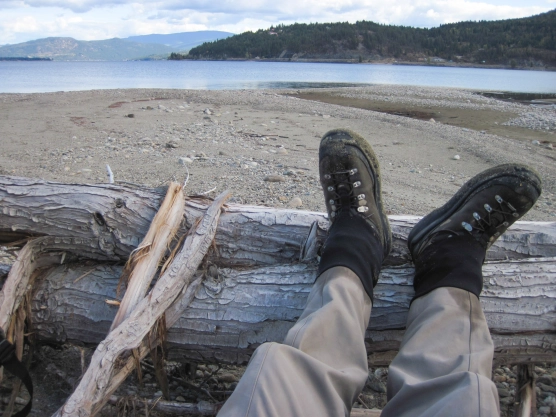
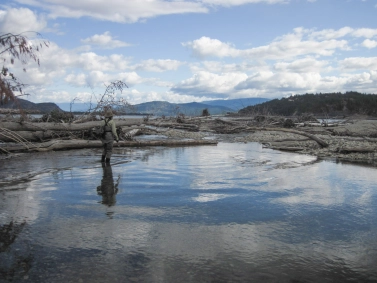
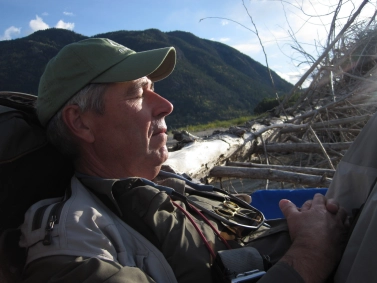

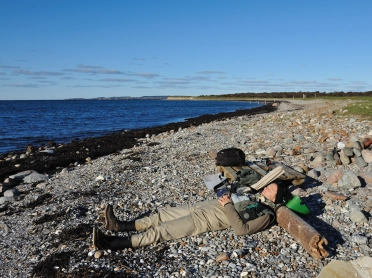
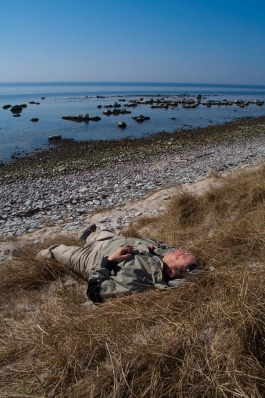
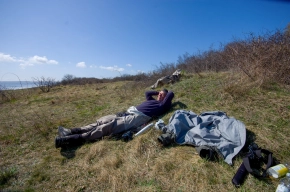
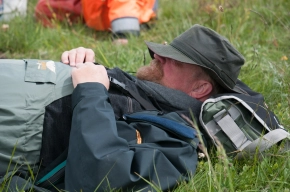
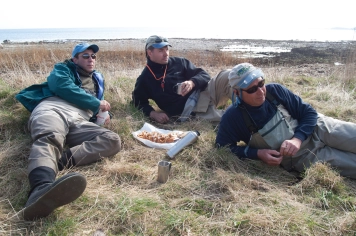

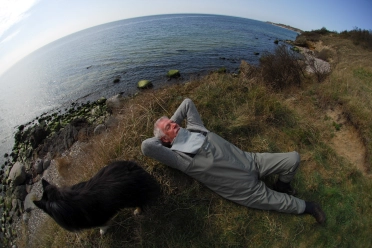
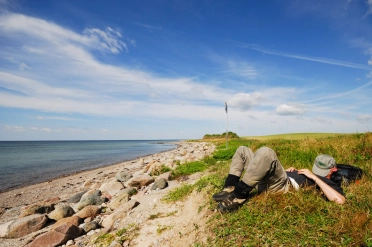
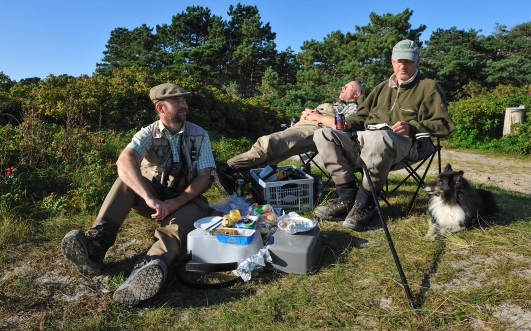


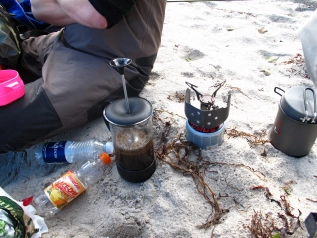
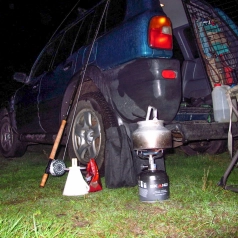
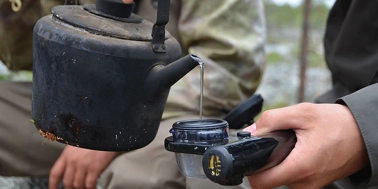
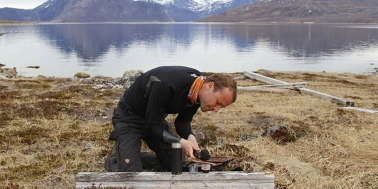

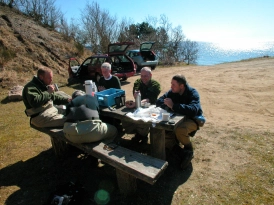
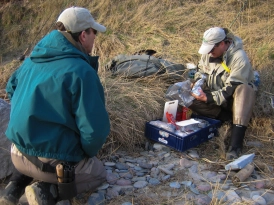
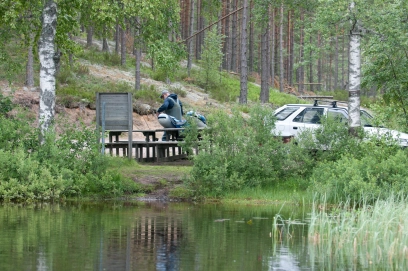

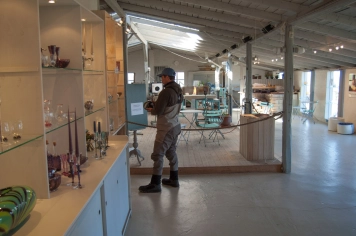
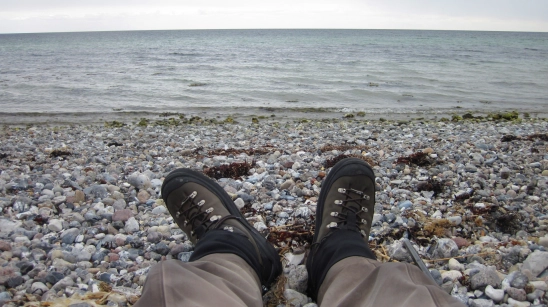

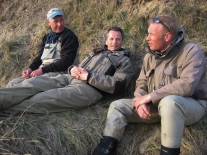




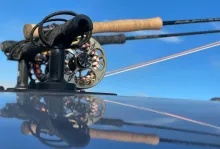
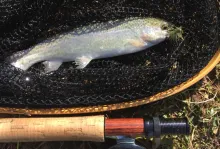

Another morfar aficionado jumps out of his closet ...
Spot on and very well written.
The first morfar (or nap) in the spring ist just as important as the first fish!
Couldn't agree more
Svend,
You are so right. That first sunny March or April day where it's warm enough to just lean back and doze off is a moment worth waiting for.
Thanks for your comment.
Martin